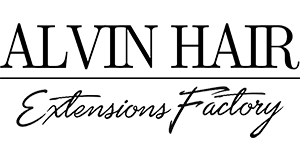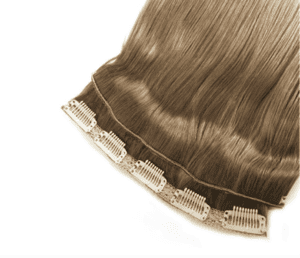
As a hair extension supplier, navigating the regulations for wholesale hair extensions can be daunting.
There are a number of factors to consider when trying to ensure compliance with state and federal laws, from product origin and labeling requirements to taxes and other fees.
But understanding these regulations is essential if you want to successfully sell your products in bulk.
In this article, we'll provide an overview of the key regulations that apply to selling wholesale hair extensions so that you can confidently move forward in your business endeavors.
We'll also discuss how best to prepare for potential changes or updates in order to stay compliant over time.
By taking the necessary steps now, you can avoid costly mistakes down the line and ensure that your customers receive quality products every time they purchase from you.
Overview of Hair Extension Regulations

When it comes to selling hair extensions wholesale, different countries have different regulations that must be followed. Here's a breakdown of the regulations governing hair extensions in the US, Europe, and the UK.
US Regulations:
In the United States, the regulation of hair extensions falls primarily under the jurisdiction of the Food and Drug Administration (FDA).
The FDA oversees the safety and labeling of the products, ensuring that they are free from harmful chemicals and properly labeled with clear information about their origin.
It's important to note that in the US, hair extensions are considered cosmetic products, which means they must undergo testing and receive FDA clearance before they can be sold to the public.
Europe Regulations:
In Europe, hair extensions are regulated by the European Union (EU) through the General Product Safety Directive.
This directive requires that all products, including hair extensions, meet specific safety standards before they can be sold within the EU.
Additionally, hair extensions sold in Europe must also meet specific labeling requirements.
These labels must provide clear and accurate information about the product's origin and any
potential risks associated with using it.
UK Regulations:
In the UK, hair extensions are regulated by Trading Standards, which is responsible for enforcing the Consumer Protection from Unfair Trading Regulations (CPRs).
These regulations require that all hair extensions sold in the UK meet certain safety standards and are properly labeled with clear information about their origin.
Hair extensions that do not meet these standards may be subject to seizure by Trading Standards or other enforcement agencies.
Navigating regulations for hair extensions wholesale can seem overwhelming, but by understanding the different types of regulations governing the industry, you can successfully sell your products while staying compliant.
It's critical to stay up-to-date on any changes or updates to regulations in order to avoid costly mistakes and provide your customers with quality products every time they purchase from you.
Partnering with a trusted supplier that prioritizes compliance can also help ensure that your business is always in compliance with local and national regulations.
Regulations Governing Hair Extension Quality
The quality of hair extensions is a significant factor that determines their usability and customer satisfaction. Different countries have set certain standards, regulations, and labeling requirements to ensure high-quality hair extensions in the market.
United States
In the United States, the quality of hair extensions is regulated by the Federal Trade Commission (FTC), which ensures that the products' advertising is not deceptive or misleading.
The FTC requires hair extension suppliers to provide clear, accurate, and truthful information on the product's packaging, including the type of hair used, the country of origin, and any chemical treatments performed on the hair. Additionally, the product must meet the standards set by the FDA for safety and labeling.
Europe
In Europe, hair extensions fall under the General Product Safety Directive (GPSD) and the Cosmetics Regulation. The GPSD ensures that all products sold in Europe are safe and meet specific quality standards.
The Cosmetics Regulation applies to any cosmetic product, including hair extensions, and requires that the products are not harmful to human health and are labeled with accurate information about the country of origin and any potential risks associated with the product.
United Kingdom
In the UK, hair extensions' quality is governed by the British Standards Institution (BSI), which sets requirements for the strength, durability, and quality of the hair. Hair extensions that meet the BSI standard indicate that they have been rigorously tested and comply with the British standard for quality and safety.
It's important to note that there are no specific quality regulations in some countries, including China, which is one of the largest suppliers of hair extensions globally.
Nevertheless, some reputable manufacturers in China follow international standards and guidelines to ensure high-quality products for their clients.
Suppliers must understand and adhere to specific regulatory requirements in the regions where they operate to avoid costly mistakes and provide their clients with high-quality and safe products.
Regulations Governing Chemicals Used in Hair Extensions
Hair extensions can undergo chemical treatments to improve their appearance or texture.
However, some of these chemicals can be harmful to human health, particularly if they're applied improperly or in high concentrations.
To prevent adverse reactions or injuries, various countries have implemented regulations that control the chemicals used in hair extensions.
United States
In the United States, the use of certain chemicals in hair extensions is restricted under the Food, Drug, and Cosmetic Act (FD&C Act) and the Fair Packaging and Labeling Act (FPLA).
For instance, hair extensions that contain formaldehyde must not exceed 0.2% of the product's weight, and the packaging must indicate that it contains formaldehyde.
Additionally, the Food and Drug Administration (FDA) monitors hair extensions containing dyes or color additives to ensure they're safe for human use and properly labeled.
Europe
In Europe, hair extensions are regulated by the Registration, Evaluation, Authorization, and Restriction of Chemicals (REACH) regulation.
The regulation restricts the use of toxic or hazardous chemicals in cosmetic products, including hair extensions. Manufacturers are required to test their products and submit information on the chemicals they use to the European Chemicals Agency (ECHA) for approval.
United Kingdom
In the UK, the Cosmetics Regulation applies to hair extensions that contain chemicals. The regulation imposes strict labeling requirements and restricts the use of certain chemicals in cosmetic products that could be harmful to human health.
Hair extensions containing hazardous chemicals must be labeled with the appropriate warning and safety instructions. Manufacturers must ensure that their products are compliant with the regulation before marketing them in the UK.
It's important to note that chemicals used in hair extensions also have environmental implications. Some countries, such as California in the US, have implemented regulations on hazardous air pollutants (HAPs) emitted by cosmetic products, including hair extensions.
Hair extension suppliers must ensure that they're following all environmental regulations in their region and consider using eco-friendly chemicals or processes to reduce their impact on the environment.
As a hair extension supplier, it's crucial to understand the regulations governing the use of chemicals in your products to avoid potential legal and health risks.
Working with a trusted supplier who prioritizes compliance can help ensure that your products meet regulatory requirements and are safe for human use.
Regulations Governing Hair Extension Packaging and Labeling
Proper packaging and labeling of hair extensions are essential for regulatory compliance and to protect both consumers and manufacturers.
Regulations in various regions mandate that hair extension products must be properly labeled to indicate the ingredients used, the manufacturer's contact details, and any potential hazards associated with the product.
In addition to complying with regulations, proper labeling can also help build consumer trust and confidence in the product. Adequate packaging is crucial to protect hair extensions from damage during transportation and storage.
It also helps in providing the necessary information about the product to consumers which ultimately affects their purchasing decision.
Therefore, manufacturers must pay attention to proper packaging and labeling to ensure the safety and quality of the product and to comply with the regulatory requirements.
Conclusion
Navigating the regulations for hair extensions wholesale can be daunting, but it's essential to ensure compliance and protect consumers.
By understanding the FD&C Act, FPLA, REACH regulation, Cosmetics Regulation, and HAPs in your region as well as properly labeling products with ingredients used, manufacturer contact details, and potential hazards associated with the product you can stay compliant while also protecting yourself from legal risks.
Additionally, working with a trusted supplier who prioritizes compliance is an important step toward meeting all regulatory requirements.
Ultimately by taking these steps, you'll help build consumer trust and confidence in your product so that customers feel secure when making their purchasing decisions.
Alvin Hair - Reliable Hair Extensions Manufacturer
In summary, navigating the regulations for hair extensions wholesale can be challenging and overwhelming, but it's crucial to protect consumers and ensure compliance.
By understanding the various regulations governing the use of chemicals, packaging, and labeling, you can stay on top of your regulatory requirements and avoid potential legal and health risks.
At Alvin Hair, we understand the importance of compliance, and we are committed to following all regulations to ensure that our products are safe and of high quality.
As a reliable hair extensions manufacturer, we prioritize compliance and provide our clients with products that meet all regulatory requirements.
We believe that building a long-term partnership with our clients starts with providing high-quality products, excellent customer service, and ensuring regulatory compliance every step of the way.
Contact us today and let us help you navigate the regulations for hair extensions wholesale, so you can focus on growing your business and satisfying your customers.








